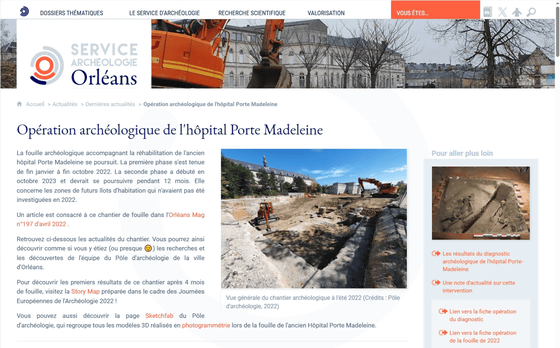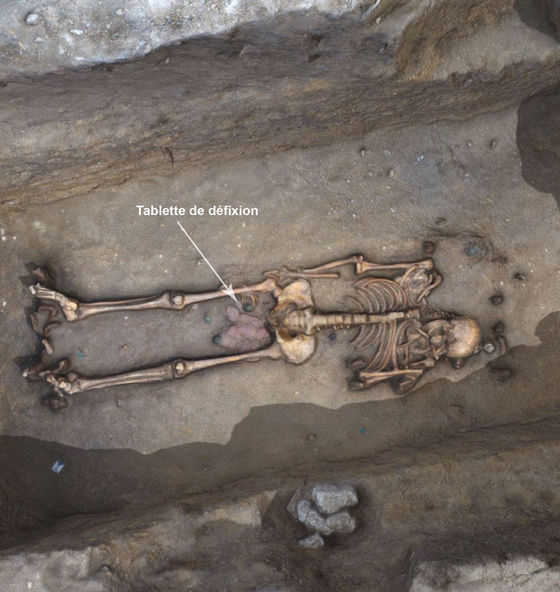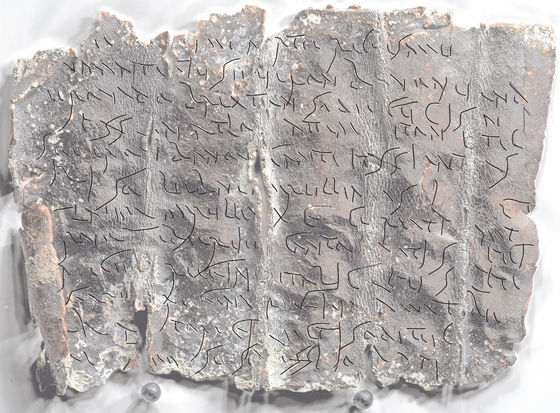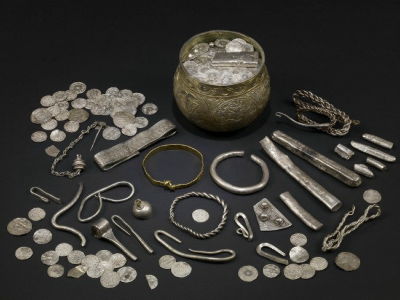A 'cursed lead tablet' praying to the god of war Mars to defeat enemies was discovered in a Roman graveyard

Excavations at the site of an 18th-century hospital in
Operation archéologique de l'hôpital Porte Madeleine
https://archeologie.orleans-metropole.fr/actualites/dernieres-actualites/operation-archeologique-de-lhopital-porte-madeleine

- La République du Center
Curse tablet found in Roman-era grave in France targets enemies by invoking Mars, the god of war | Live Science
https://www.livescience.com/archaeology/curse-tablet-found-in-roman-era-grave-in-france-targets-enemies-by-invoking-mars-the-god-of-war
According to the Orleans Archaeological Office, which was in charge of the excavation, the cemetery dates from the Roman period between the 1st and early 3rd centuries, and is quite unusual for the time, with 'bodies buried in a row,' 'no women or children,' 'painted traces on the wooden coffins,' and 'no bodies cremated.' The Orleans Archaeological Office points out that these characteristics may indicate that the buried people belonged to a specific group, such as the same occupation.
The tomb also contained 21 'lead tablets,' similar to those found throughout the ancient Mediterranean world.
A man buried in grave number F2199 had a lead plate placed between his legs and a broken vase and several coins next to him.

The lead plates were folded and rolled up, and inscribed with Latin and Gaulish characters.
After carefully examining the tablet, they discovered that it was dedicated to Mars, the god of war, and that engraved on it were the names of several people who had been cursed for their wrongdoings.

Excavation work is scheduled to end at the end of January 2025, after which analysis of the discovered materials will proceed. Gaulish is one of the Celtic languages that fell out of use around the 6th century, and it is hoped that valuable examples of its use will be found on other lead tablets.
Related Posts:
in Science, Posted by logc_nt







